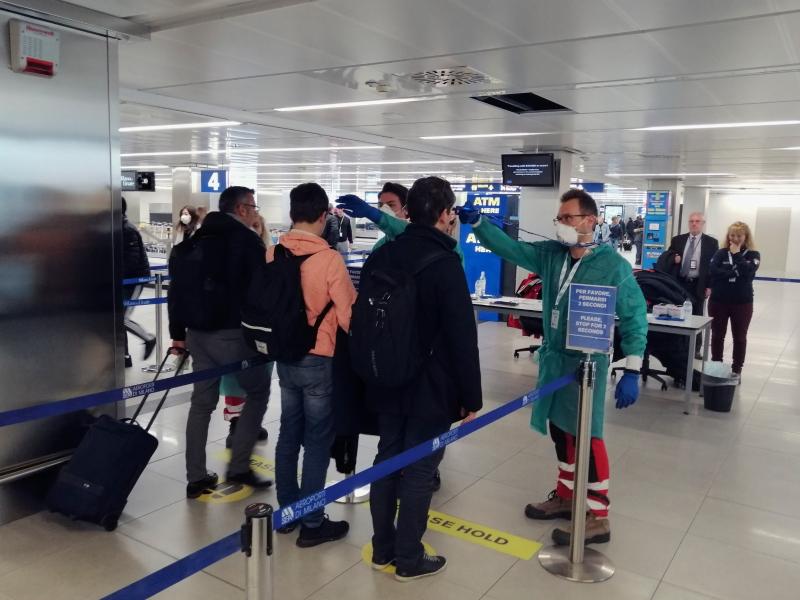As both a health and economic crisis, the Covid-19 pandemic is the largest global challenge of our lifetimes. Over 30 percent of the world’s population is now under some form of restricted movement, while workers in many industries face loss of income and threats to their employment due to the severe contraction of the economy.
Brave workers are on the frontline of this crisis, risking their own personal welfare, including health and social service, supply chain and public transport workers.
The current crisis has brought into sharp focus the critical role public transport services play in the economic and social life of cities. Essential workers in health systems and other emergency services depend on these networks to get to and from work, while entire populations rely on them to access testing, medical services and basic necessities. Women, in particular, rely more heavily on public transport to access basic services and undertake caring responsibilities.
Public transport workers are indispensable in dealing with this emergency. Millions of workers, formal and informal, are keeping public transport systems moving during this time of crisis. They are the drivers, ticket sellers, conductors, maintenance and office workers who provide this vital service for keeping us safe and healthy.
Protecting the health, incomes and jobs of these workers is critical to responding to, and recovering from, this pandemic. Given their vital role and public function, guaranteeing health protections and decent employment for public transport workers is important not only for the workers themselves, but for the health and livelihoods of the general population.
Public transport workers must be able to carry out their jobs safely, while minimising the risk to themselves and passengers. Many roles in public transport are customer-facing with an increased risk of catching and spreading the virus, as well as violence at work.
Young workers, in particular, have been considered less likely to develop serious symptoms. However, without adequate personal protective equipment, they face the same increased chance of contracting and spreading the virus.
Health and safety measures should apply regardless of a workers’ contractual arrangement and be responsive to different genders and migration statuses. Due to the already male-dominated and gender-segregated nature of the public transport sector, women need to be involved at the decision-making stage of any new measures.
For this, public transport authorities and companies must negotiate with unions to ensure:
- adequate personal protective equipment is provided to all workers regardless of job description and form of employment, including gloves, masks and hand sanitiser and/or water and soap as required
- adequate comprehensive healthcare coverage, which includes free Covid-19 testing and treatment
- swift provision of information on employers’ Covid-19 response measures to workplace infections or other risks is provided to all workers in the workplace regardless of job description and form of employment
- adequate protections, including adjustment of work schedules, with no loss of earnings for vulnerable and at-risk workers or those with vulnerable and at-risk people in their households, including pregnant employees and new parents
- measures that enable adherence to social distancing standards, including non-collection of fares, cashless payments, non-inspection of tickets, rear-door entry and/or closing of drivers’ doors, blocking of front row seats and introducing limits to passengers per vehicle
- strict and regular cleaning and sanitation procedures are followed in public transport workplaces, vehicles and dormitories
- sufficient paid leave for workers affected by Covid-19 either directly or indirectly (for example infection, isolation of family or childcare obligations)
- appropriate sanitation facilities and breaks, in accordance with the provisions of the ITF Transport Workers’ Sanitation Charter, particularly given the shutdown of many public facilities often used by workers. This should apply whether workers are mobile, working at depots, at termini, in maintenance or customer services
- safe commuting measures, which may include provision of transport for public transport workers to and from work, while mobility restrictions are in place
Covid-19 social distancing and lockdown procedures have resulted in a reduction of public transport services. Where this occurs, governments, public transport authorities and companies must guarantee that:
- minimum services are maintained to allow essential workers to travel to and from jobs
- all minimum services are arranged so that workers and passengers can travel safely
- workers’ terms and conditions and jobs are protected, and they continue to receive their income regardless of employment status
- financial support to public transport operators is conditional on preservation of workers’ terms and conditions
Many of the world’s public transport systems rely on informal workers. In some cities, they constitute 85 percent of the urban transport workforce, and women and young workers are over-represented. Young workers are more likely to have temporary, atypical contractual relationships with limited or no access to social and health protection, as well as paid leave. They are therefore vulnerable to layoffs and cuts in working hours without proper protection and compensation.
The sudden shutdowns and reductions in mobility have meant informal transport workers have either lost their livelihoods or been compelled to keep working in order to earn a daily wage, despite the risk to their health. It is necessary that these workers, who are a vital part of local economies, are protected.
The ITF is calling on local, regional and/or national governments to guarantee:
- income protection/cash grants for all public transport workers, formal and informal, where public transport has been reduced to minimum service levels or shut down. This includes where there is loss of income for informal workers due to a drop in passenger numbers
- a package of practical support, which includes food rations, health and hygiene support, relief from loan repayments, rent and utilities payments, and support for care work
The importance of public transport to urban life has long been highlighted by transport workers and trade unions; this has been spotlighted by the current crisis. There are countries and cities where public transport is being renationalised. However, we cannot accept that governments nationalise at a time of losses and risks, but privatise when private companies consider there are opportunities to make a profit.
Public transport services will be necessary to rebuild the economic and social life of cities after Covid-19, and public transport must be expanded and improved to deal with the climate crisis. Such a vital sector must put people before profit at all times.
As the crisis continues to unfold, governments, trade unions, employers and civil society will need to find viable solutions to deal with debt incurred by public transport systems as a result of Covid-19. This is also an opportunity to ensure that public transport is organised to meet social and economic priorities, including the provision of good jobs for women and men workers. To enable this, long-term financial support for public transport must be conditional on the fulfilment of public interest goals including gender impact assessments, increased democratic governance and the maintenance and expansion of decent work.
Only a public goods model can guarantee the quality services needed by millions of people during times of crisis and calm.





